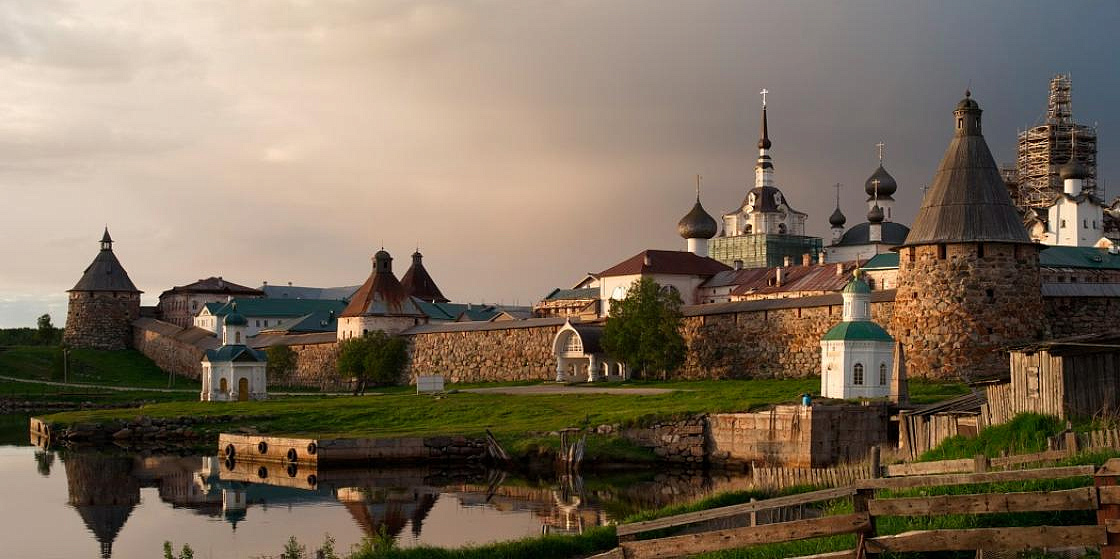
Photo: Phursov Alexander/GeoPhoto.ru
Arctic Weekly: Conservancy Efforts, Permafrost Challenge, and Flagship Icebreaker
This week, a major conservancy initiative for the Arctic was inaugurated by the Civic Chamber of Russia. It aims at joining efforts of the federal and regional authorities, environmentalists, businesspeople, activists and volunteers for the sake of improving the environment of, and the quality of life in, the Arctic. PORA is proud to announce that it will participate in this initiative, too.
And now on to other news.
Arctic fishing ban. A ban on unregulated commercial fishing in the central Arctic Ocean for at least 16 years introduced under the 2018 Agreement to Prevent Unregulated High Seas Fisheries in the Central Arctic came into effect. The idea behind the ban is to buy time for more scientific research in this part of the Arctic.
Permafrost challenge. Permafrost thawing is a major threat to the Arctic. According to the Russian Ministry for Natural Resources and Environment, the cost of potential damage dealt by thawing of permafrost to the Russian Arctic is estimated at about USD 670 billion. In this light, the Ministry suggested launching a comprehensive permafrost monitoring system in Russia’s polar regions.
Leader’s power. The Zvezda shipyard has issued a tender for the design and production of an electric power supply system for Leader class icebreakers, the first of which is currently being built there. This nuclear-powered icebreaker, the largest and most powerful in the world, is expected to become operational by 2027.
More cashback for tourists. The Arctic being an expensive destination, authorities of the Chukotka Autonomous District suggested increasing the amount of federal funding for tours to the Russian Arctic and Far East under the governmental Tourist Cashback program.
Karelian land plots. The Far East and Arctic Ministry okayed the list of areas eligible for land plot allocation under the Arctic Hectare program in the Republic of Karelia (Russia). The area amounting to 337,000 ha is believed to be the largest chunk of land made available for the program among other Russia’s Arctic regions.
Methanol production. A new methanol plant will be built in the Nenets Autonomous District, Russia. Ruskhim, a Russian-based chemical producer, signed a contract with an engineering design agency for designing a plant capable of producing 1.8 million tons of methanol per year. The plant is expected to be commissioned in 2025.
Indiga port. Launching the said methanol facility may contribute to advancing the long-discussed Indiga project envisaging building an ice-free port on the Barents Sea. Despite numerous potential advantages, it has been advancing only at a slow pace due to unclear funding prospects. As the methanol plant will need access to an export terminal, the Indiga project will have better chances for being resumed, analysts believe.
Recycling scrap. The Yakut Republic has announced a project focusing on removing metal scrap that has been accumulating in northern areas of the region for decades. The project will be co-funded and co-operated by both private and public entities. Regional authorities plan to take away for recycling about 100,000 tons of scrap in five years.
Cleaner water for Arkhangelsk. The water treatment system of the city of Arkhangelsk is to undergo a major refurbishment under a joint public-private program that will start this year. The city seeks to achieve zero waste production by 2034.
Murmansk: breathing fresh air. Murmansk regional authorities reported a drastic improvement of air quality in this border region. According to the governor, this happened owing to the closure of the outdated industries and modernizing newer ones by Nornickel, a major metal producer operating in the region.
Funding for an Arctic station. About 3 billion rubles were allocated to fund the construction of the Snowflake International Arctic Station in Yamal, an innovative year-round research lab to be fully powered by renewables. Two such stations will be built in the Russian Arctic, in the Yamalo-Nenets Autonomous District and the Murmansk region.
Brought to you by Alexander Stotskiy, PORA.
And now on to other news.
Arctic fishing ban. A ban on unregulated commercial fishing in the central Arctic Ocean for at least 16 years introduced under the 2018 Agreement to Prevent Unregulated High Seas Fisheries in the Central Arctic came into effect. The idea behind the ban is to buy time for more scientific research in this part of the Arctic.
Permafrost challenge. Permafrost thawing is a major threat to the Arctic. According to the Russian Ministry for Natural Resources and Environment, the cost of potential damage dealt by thawing of permafrost to the Russian Arctic is estimated at about USD 670 billion. In this light, the Ministry suggested launching a comprehensive permafrost monitoring system in Russia’s polar regions.
Leader’s power. The Zvezda shipyard has issued a tender for the design and production of an electric power supply system for Leader class icebreakers, the first of which is currently being built there. This nuclear-powered icebreaker, the largest and most powerful in the world, is expected to become operational by 2027.
More cashback for tourists. The Arctic being an expensive destination, authorities of the Chukotka Autonomous District suggested increasing the amount of federal funding for tours to the Russian Arctic and Far East under the governmental Tourist Cashback program.
Karelian land plots. The Far East and Arctic Ministry okayed the list of areas eligible for land plot allocation under the Arctic Hectare program in the Republic of Karelia (Russia). The area amounting to 337,000 ha is believed to be the largest chunk of land made available for the program among other Russia’s Arctic regions.
Methanol production. A new methanol plant will be built in the Nenets Autonomous District, Russia. Ruskhim, a Russian-based chemical producer, signed a contract with an engineering design agency for designing a plant capable of producing 1.8 million tons of methanol per year. The plant is expected to be commissioned in 2025.
Indiga port. Launching the said methanol facility may contribute to advancing the long-discussed Indiga project envisaging building an ice-free port on the Barents Sea. Despite numerous potential advantages, it has been advancing only at a slow pace due to unclear funding prospects. As the methanol plant will need access to an export terminal, the Indiga project will have better chances for being resumed, analysts believe.
Recycling scrap. The Yakut Republic has announced a project focusing on removing metal scrap that has been accumulating in northern areas of the region for decades. The project will be co-funded and co-operated by both private and public entities. Regional authorities plan to take away for recycling about 100,000 tons of scrap in five years.
Cleaner water for Arkhangelsk. The water treatment system of the city of Arkhangelsk is to undergo a major refurbishment under a joint public-private program that will start this year. The city seeks to achieve zero waste production by 2034.
Murmansk: breathing fresh air. Murmansk regional authorities reported a drastic improvement of air quality in this border region. According to the governor, this happened owing to the closure of the outdated industries and modernizing newer ones by Nornickel, a major metal producer operating in the region.
Funding for an Arctic station. About 3 billion rubles were allocated to fund the construction of the Snowflake International Arctic Station in Yamal, an innovative year-round research lab to be fully powered by renewables. Two such stations will be built in the Russian Arctic, in the Yamalo-Nenets Autonomous District and the Murmansk region.
Brought to you by Alexander Stotskiy, PORA.
12 July 2021




